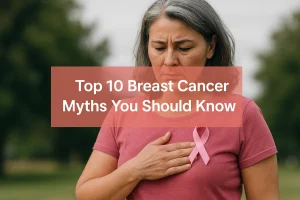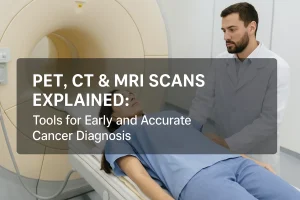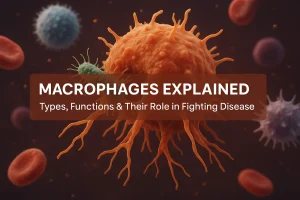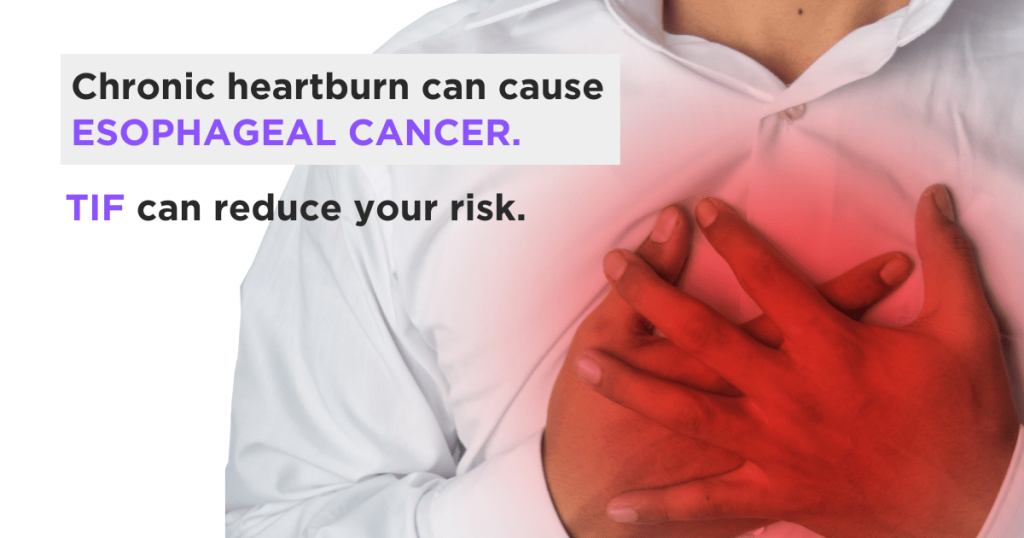
Untreated Esophageal Cancer: Key Symptoms & Risks
What Is Esophageal Cancer?
Esophageal cancer is a serious, rapidly growing cancer that affects the esophagus, the muscular tube that transports food from the mouth to the stomach. While less common than other types of cancer, its aggressive nature and late-stage diagnosis make it one of the most lethal forms of gastrointestinal cancer.
If left untreated, esophageal cancer can quickly advance, causing life-threatening complications, a decline in quality of life, and poor survival rates.
What Happens If Esophageal Cancer Is Left Untreated?
When left untreated, esophageal cancer progresses through the following stages:
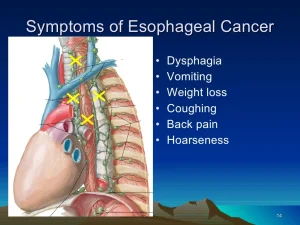
1. Early Stage
- The tumor is still inside the esophageal lining.
- Mild symptoms such as difficulty swallowing (dysphagia), heartburn, or minor chest discomfort may develop.
- At this point, treatment is the best option for a cure.
2. Locally Advanced Stage:
The esophageal wall and surrounding lymph nodes are affected by deeper cancer.
- Symptoms become more intense:
- Extreme dysphagia
- Regurgitation of food
- Chronic pain in the chest
- Unintentional weight loss
3. Metastatic Stage
- The cancer metastasizes, or spreads, to other organs like the brain, liver, lungs, or bones.
- Patients may experience:
- Jaundice.
- Bone pain
- Breathing problems
- Neurological symptoms
At this point, treatment options become limited and mostly palliative.
Complications of Untreated Esophageal Cancer
Without treatment, esophageal cancer can lead to several serious complications:
- Esophageal Obstruction: Aspiration pneumonia, malnourishment, or choking may result from tumor growth that obstructs the passage of food and liquids.
- Gastrointestinal Bleeding: Cancer can damage blood vessels, which can result in black stools (melena) or bloody vomiting (hematemesis).
- Severe Chest Pain results from tumor pressure on surrounding organs or nerve involvement.
- Respiratory Problems: Breathlessness, wheezing, or a persistent cough can be symptoms of tumors that are pressing on the trachea or bronchi.
- Fistula Formation: In advanced cases, abnormal connections (fistulas) may form between the esophagus and nearby organs such as the lungs, windpipe, or blood vessels, leading to infections or severe complications.
Why Early Diagnosis Is Critical
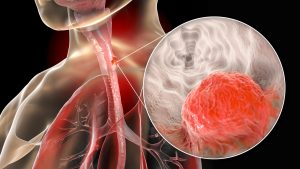
Esophageal cancer survival and treatment results are greatly enhanced by early detection. Individuals with higher risk factors, such as Barrett’s esophagus, GERD, heavy smoking, or alcohol use, should have regular screenings.
Common Diagnostic Tests:
- Upper Endoscopy
- CT Scan or PET Scan
- Biopsy
- Endoscopic Ultrasound
Treatment Options for Esophageal Cancer
- Surgical Treatment: Early-stage cancers can be treated with esophagectomy or endoscopic mucosal resection (EMR).
- Chemotherapy & Radiation: Used together or as standalone treatments to reduce tumor size or relieve symptoms.
- Targeted Therapy & Immunotherapy: Applied in advanced or inoperable stages.
- Palliative Care: Focuses on symptom relief, pain management, and nutritional support when curative treatment isn’t possible.
Final Thoughts
Untreated esophageal cancer leads to serious, progressive complications and significantly shortens life expectancy. Timely diagnosis and early medical intervention are key to better outcomes and improved quality of life. Awareness, routine checkups, and proactive screening for high-risk individuals can save lives.
Frequently Asked Questions
What are the symptoms of untreated esophageal cancer?
Common symptoms include difficulty swallowing, chest pain, weight loss, food regurgitation, and, as the cancer progresses, vomiting blood or difficulty breathing.
Can esophageal cancer go away on its own without treatment?
No. Esophageal cancer does not heal by itself. Without treatment, it spreads quickly.
How long can you live with untreated esophageal cancer?
Though life expectancy varies by stage. In advanced, untreated cases, survival can range from a few months to a year.
Is weight loss always a sign of esophageal cancer?
A common symptom, particularly in later stages, is unexplained weight loss brought on by poor nutritional intake and difficulty swallowing.
When should I see a doctor for esophageal cancer symptoms?
If you experience unexplained weight loss, chest pain, heartburn that is not relieved by medication, or persistent difficulty swallowing, you should see a doctor.




